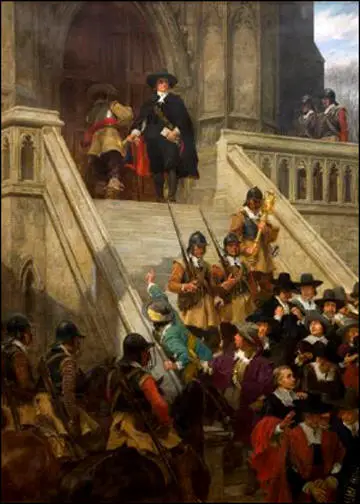Thomas Pride
Thomas Pride was born near Glastonbury in about 1610. He worked as a drayman in London and on the outbreak of the Civil War joined the Parliamentary forces. He was a good soldier and eventually became a colonel in the New Model Army. Pride, who fought at Naseby, was given command of a brigade in Scotland.
In December 1648 Pride's troops expelled from the House of Commons that MPs who favoured a negotiated settlement with Charles I. After what became known as Pride's Purge, the remaining MPs formed the Rump Parliament, which remained in session until 1653.

Pride was knighted and Oliver Cromwell nominated him to sit in Parliament. He was also given large estates and he purchased Nonsuch, a palace previously owned by Henry VIII. Sir Thomas Pride died in 1658.
After the Restoration Pride, Oliver Cromwell, Henry Ireton and John Bradshaw were all posthumously tried for high treason. They were found guilty and in January 1661 their corpses were exhumed and hung in chains at Tyburn.

